- sixteenth century
- Aulis Sallinen
- Victor Babin
- Lars Johan Werle
- Pictures from an Exhibition
- Seikilos Epitaph
- Ashley Turnell
- Giulio Plotino
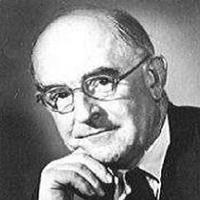 SPONSORED: Ensemble. Unjustly Neglected - In this specially extended feature, Armstrong Gibbs' re-discovered 'Passion according to St Luke' impresses Roderic Dunnett.
SPONSORED: Ensemble. Unjustly Neglected - In this specially extended feature, Armstrong Gibbs' re-discovered 'Passion according to St Luke' impresses Roderic Dunnett.
All sponsored features >>
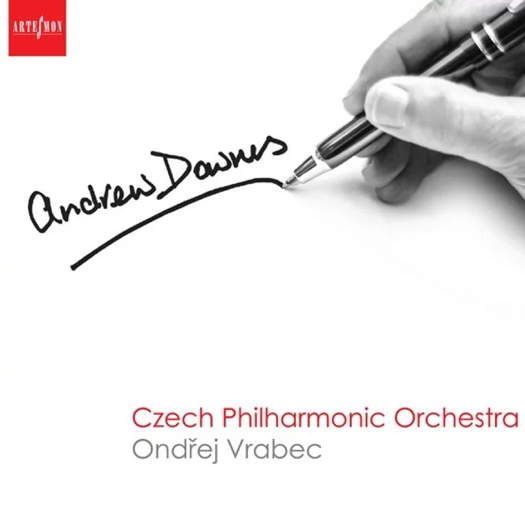 SPONSORED: CD Spotlight. On Buoyant Form - Orchestral music by Andrew Downes, heard by Roderic Dunnett.
SPONSORED: CD Spotlight. On Buoyant Form - Orchestral music by Andrew Downes, heard by Roderic Dunnett.
All sponsored features >>
Beautiful Things

ONA JARMALAVIČIŪTĖ talks to
Croatian-American musician and peace activist
Nenad Bach, who finds the power of music
undeniable, like the power of love
Croatian-American recording artist, composer, and performer Nenad Bach is a citizen of the world. He has performed all over the globe with such artists as Luciano Pavarotti, Bono, Brian Eno, Indigo Girls, Richie Havens, Garth Hudson, Grateful Dead and many more. In 1998 he made a compilation album with Bruce Springsteen, Leonard Cohen and Allen Ginsberg. In addition to his own records, Nenad has scored many features and short films. Most importantly Nenad Bach nurtures a dream informed by his quest for universal justice and deep longing for world peace. In this interview, the musician and peace activist elaborates on his everyday rituals, future projects and growth as a music maker.
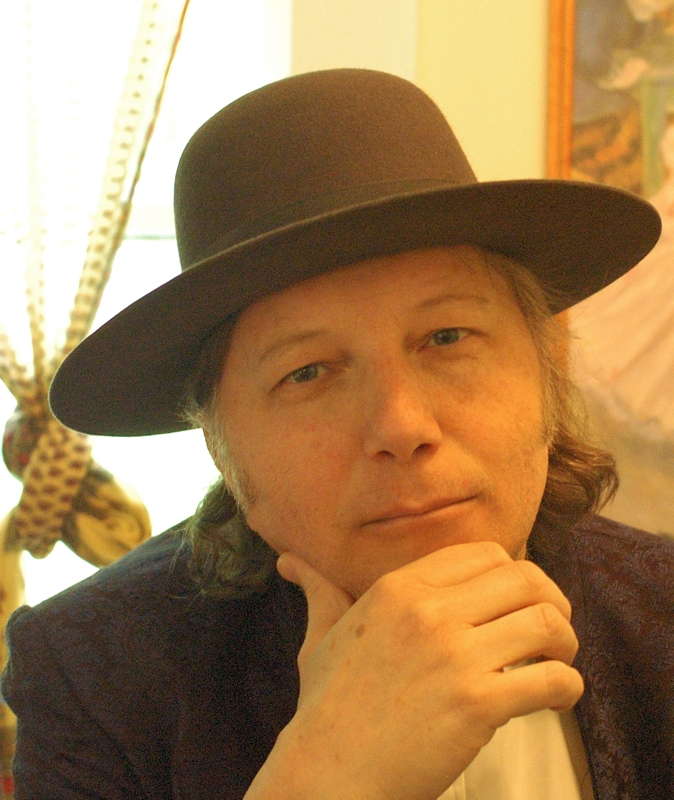
Nenad Bach (born 1954)
Ona Jarmalavičiūtė: You are from Croatia, you spend most of your career in America and you travel around the world. How are these different cultures affecting you creatively?
Nenad Bach: It is interesting that every culture, every government, every state, has something that is exceptionally good. The world could pick the best things from each country and recreate them in their own country. Maybe Croatia is not as developed as the US or Switzerland or Lithuania, but there are some very good things that other countries don't have. Traveling opens your mind, whether you like it or not.
Music is an important way to communicate between cultures. English folk songs and Jamaican Reggae are familiar all around the world. Croatia has an a cappella folk tradition called 'klapa' (which means group) performed by amateurs but nonetheless some of the best singers on the planet. I have been involved in taking that music around the world by producing seven CDs of klapa groups, four in Super Audio CD (SACD). Two of the CDs are by female klapa groups, which is a modern evolution of the tradition.
One of the groups I produced, Klapa Sinj, joined me in a three-city tour of the US - New York City, Washington DC and Chicago - where we integrated their traditional songs into my rock-and-roll performance. They did not restrict their singing to the stage: they sang everywhere they went - airplanes, airport terminals, buses, Chicago City Hall, on streets waiting for the light to change, and more. Without fail, everyone around them just froze and basked in the sounds they made. I encourage everyone to listen to and share this amazing musical tradition.
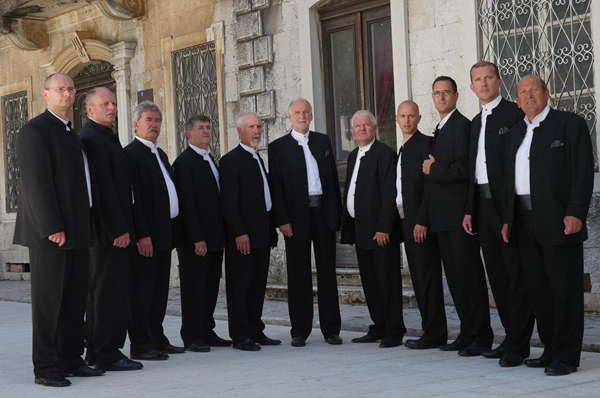
Klapa Sinj
WATCH KLAPA SINJ PERFORMING 'LIPO IME' AT STADION POLJUD IN 2006
OJ: What opened your mind the most when you moved to the USA?
NB: I was searching for freedom, but as far as I know, there is no freedom yet. A political problem in Croatia during communism was that you couldn't say things. Even now you can say more things, but not everything that you want to say. A major issue in the US is the property tax, when you pay to the government for something that you own. That is a total contradiction in itself. It's a big disappointment because you have to pay a fee to the government to enjoy your own home. We are back in feudalism and don't even know it.
WATCH NENAD BACH'S TEDX TALK IN ZAGREB - 'ALL I WANT IS FREEDOM'
OJ: How did you become a peace activist?
NB: In search of freedom you find beautiful things. And you realize that people all around the world have the same desires - to have a good job and some security in their lives. They all want peace. That's why world peace is one of my themes. That is something I learned during traveling - peace is what the people desire. The whole concept of world peace in one hour is very prominent in my life. I have basic steps on how to achieve it. It may sound lunatic, but for me, it looks realistic.
OJ: How does the situation around world peace look like today?
NB: In my opinion, the First World War was stopped by Spanish flu, not that one side defeated the other. The flu started in January 1918 and the world war ended in November 1918. The war took twenty million lives but the flu took over fifty million lives. Now we have the Corona Virus. Fighting is going only in Libya and Syria, where there is almost no Corona. As soon as the Corona comes to Libya and Syria, it will be the end of the war.
OJ: Was there a moment or situation when you realized that you wanted to be a peace activist and dedicate your life to this theme?
NB: Yes. I lived in a communist society and I remember the election one year, I was in high school at the time. They gave me a piece of paper for voting. There were seventeen people on the list and I asked them: how many people can I choose. They said that I must select all seventeen. It insulted me deeply. It felt like an insult to human intelligence. After that, everything they said felt false to me. Such a system had to fail, because it was based on nothing, but fear only. I searched for something better, which I guess I found. There is corruption here as well but in a different way. I followed people who fought for peace - from Gandhi to John Lennon. They all spoke the truth and I place value on the truth.
Finally, my country of Croatia fought a war of independence from the former Yugoslavia. I never questioned the integrity of the World Court before. But now I learned that the highest court of humanity is corrupt. For example, the failure to prosecute the people responsible for the genocide in Vukovar, Croatia by prosecutor Carla Del Ponte. Why can't the prosecutors be prosecuted?
WATCH 'VUKOVAR', PERFORMED BY NENAD BACH AND KLAPA SINJ IN ZAGREB
OJ: What power do you think music has to speak the truth?
NB: The power of music is like the power of love - it's undeniable. When you strike the right chords, it goes directly to the heart of the listener, without any brain interaction. All around the world, when you play music - people pay attention to it. The Woodstock music festival helped to stop the Vietnam War.
The atmosphere of the room changes when someone picks up an instrument and starts playing. There is something magical about music that you can't compare to anything else. What it is, physically - just moving air, practically or spiritually - magic.
OJ: How did music come into your life?
NB: My grandfather played the violin and my father played the violin and piano. When I was seven years old I inherited the violin from my father. On the very first day I had it I sat on the bow and broke it! But I got a new bow and I played violin for approximately twelve years in school in Rijeka.
OJ: What was the evolution of your music writing? How did you grow later on?
NB: My main step forward in writing was when I formed my group Vrijeme i Zemlja (Time and Earth) in the first years of my civil engineering studies. I wrote my first song on the piano in 1978. It was called Nokturno. One night I played Nokturno at the Zagreb Chanson festival and was offered a professional contract from the label RTV Ljubljana. That night I could not sleep from the excitement, especially because I was sleeping on the kitchen floor under the table in my sister's small apartment.
There were two songs that came to me in a dream - one was Nokturno and the other was Can We Go Higher? I remember waking up, going to the piano, turning on the microphone and cassette recorder. The songs had much more sophisticated chord progressions than my piano playing abilities. I have no idea where they came from.
LISTEN TO NENAD BACH'S FIRST ALBUM: VRIJEME I ZEMLJA
WATCH 'NOKTURNO' WITH VRIJEME I ZEMLJA AT ZAGREB CHANSON 1978
OJ: How did your first album come about?
NB: At that time there were no private recording studios. Only people who had a contract with the label could record. Now that seems very strange because everyone has a small studio at home and can record music with their phones. At that time, either you are in big machinery, or out completely. They gave contracts for maybe one or two singers per year. No one had ever made an album in Rijeka. I remember saying that I am going to record an album and people were laughing about it. But only nine months later my first album hit number one. Even today after forty years I still like the way it sounds.
OJ: How does writing music for albums compare to composing music for a film?
NB: For me, writing music for albums is truly inspirational because I just capture what comes to me.
The writing process for films is less intuitive. You find yourself in the position with blank paper in front of you. There is a chair in the film and they say - give me some music for the chair. You have to produce something that the chair doesn't object to. I find it very challenging.
Recently I scored two movies - Heroes are Never Forgotten and Circle of Honor about Peter Tomich, a Croatian-American sailor who was awarded the Medal of Honor after he gave his life to save fellow sailors at Pearl Harbor. But the medal was never given to his family. A retired naval officer, Admiral Lunney, took up the cause and researched it enough to finally correct this injustice. When starting to score these films I was standing in front of a blank piece of paper, thinking 'how will I do this?' The only reason that I felt I could do it was because I have done it before.
WATCH: MUSIC FOR THE FILM 'HEROES ARE NEVER FORGOTTEN'
Composing music for film is a unique process and there are no schools teaching it. If you want to become a doctor or engineer, there are thousands of schools - if you want to become a composer for movies, there are none. As a composer, you have to watch movies, learn from other composers, talk to people, experiment, observe. That's an artist's duty anyway - to observe the world.
OJ: Are there any everyday rituals in your life as an artist?
NB: I do a couple of exercises and I love to juggle, it brings me joy. Also, there is a ping pong table in the recording studio and I play ping pong every chance I get. This is because I was diagnosed with Parkinson's in 2010 and playing ping pong has greatly helped me regain coordination and reverse some of the symptoms. Every morning when I wake up I read emails. It's really nice to start a day like that. The emails are from all over the world, different kinds of people from all walks of life. They are asking me about Parkinson's, music, songs, movies, etc. it's all very gratifying.
OJ: You have many different roles: musician, activist, organizer and producer. How do these fit into your everyday life?
NB: All these things are similar because it's me who is doing all the activities. Everything is connected, nothing separated. I organize table tennis matches 'Ping Pong Parkinson' and I try to combine it with diplomacy and ideas of world peace. After all, it was ping pong that brought the US and China together to start diplomatic relations.
What I like about sports is that they're very transparent. If a million people are watching, it is not easy to cheat. Not like in politics or business. Sport is also fair - the one who has the talent and sets goals wins. Your salary or the wealth of your nation doesn't matter.
OJ: How were you treated when you came to the United States?
NB: I was very welcomed in America when I came, but there were a couple of occasions when I was made fun of from where I came. People try to diminish the value of small countries. I answered: Listen, buddy. My high school is twice as old as your country. Just think about it. There was a silence after that. But otherwise, I was welcomed and supported. People are very supportive of other people's desires in America. If you say that you want to fly to the moon, they will be excited to see your rocket. In Europe, everyone would only laugh at such an idea. It's about talent in what you do, not where you came from. The same in music - there are rules in a band: if you play well, you are accepted. As long as you are talented, you are in. Nothing else matters. Also, you can't do much by yourself. If you want your music to be heard, you need an orchestra, recording studio and a lot of people helping and working on it.
OJ: Was there a concert experience really special to you?
NB: There has been something special about every time I've performed. But there are two experiences that stand out. One was the Woodstock festival in the year 1994. I played for half a million people. It is difficult to put that experience into words. Another special concert in Italy was called 'Pavarotti and Friends for the Children of Bosnia', to help the children affected by the war. Ten million people watched live on TV in Italy, and 100 million around the world watched the broadcast. I was very fortunate to perform there with Pavarotti and with others like Bono and The Edge from U2, Meatloaf, Michael Bolton, Dolores O'Riordan, Simon Le Bon (Duran Duran), Zucchero and others. Such things change your life.
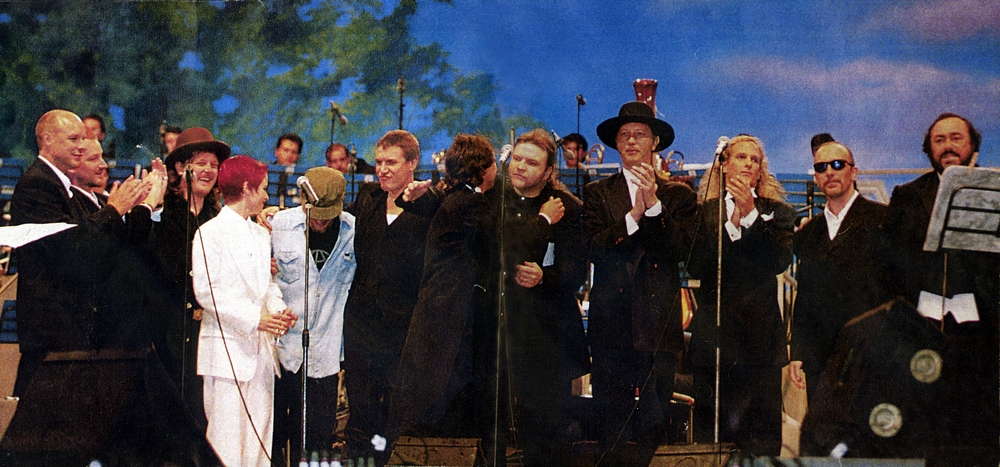
Pavarotti and Friends' 1995 humanitarian concert for the children of Bosnia and Herzegovina, with Nenad Bach (fourth from right) and Luciano Pavarotti (far right)
WATCH: 'CAN WE GO HIGHER?' AT PAVAROTTI & FRIENDS FOR BOSNIA, 1995
OJ: Were there some musicians that inspired your own creative work?
NB: I never analyze other people's work. I just feel it and like it. The Beatles had the biggest influence on me. I listened to King Crimson, Rick Danko and Garth Hudson (The Band), Pink Floyd and many others. I also like classical music - Mozart, Bach, Beethoven, Tchaikovsky and especially Prokofiev. I also always observe when I am performing with other musicians. For instance, when I worked with Pavarotti for five days from morning till night, I observed what he was all about - how he coped with the challenges. Being close to a number of people who succeeded helps me to make better decisions.
OJ: Your music lyrics were described as meaningful to humanity. How do you write lyrics and what is most important to you in this process?
NB: I really don't know the answer, because I never analyze myself. I don't try to figure out the pattern and I am not sure whether there is one in the first place. Words just come to me and I develop it from there. The first line of the song is like a key that unlocks the entire piece. Once you put the key into the lock, you know that you will enter.
By the way, I find it interesting that we have keys not because we don't know how to enter our property. It's just for other people not to be able to enter. That is the state of humanity. One day we will trust each other enough and so there will be no need for locks.
For example, after the opening lines to my song I Will Follow You came to me - 'Too many leaders, no one to follow ...' - I knew that the rest of the song would follow.
WATCH NENAD BACH'S 'I WILL FOLLOW YOU' MUSIC VIDEO
OJ: What has your career given you that you would not have had otherwise?
NB: I think it is important that it enabled me to talk to people that I would not have been able to talk otherwise. During the war in Croatia, I spoke with the president of the United States. And even our president couldn't do that. I was able to talk to Lady Diana and she listened to me. Our politicians and leaders couldn't do that. Because of music, I had incredible access.
As a matter of fact, I hold poets as the beacons of humanity; a compass for the entire society, providing direction so that we can follow and make the world a better place. I am lucky to work with other artists of the highest caliber.
OJ: Which future projects excite you the most?
NB: There are two major projects in my life and they have a lot of small projects around them.
The first is called World Peace in One Hour. I think peace is a human right, not an option. War should be in museums. I try to promote this idea through different domains. First are the Arts - I've always wanted to hear how the world sounds, therefore we will assemble an orchestra with all the instruments in the world. This will have to be done virtually and will bring attention to the people of the world that peace is possible, profitable and inevitable.
I just finished mixing the latest album titled World Peace in One Hour. It was recorded in a live concert in Lancaster, Pennsylvania, with a jazz band named King Street Big Band. I don't know if I ever want to do a live album again, because it's just too scary. On the other hand, scary things never scared me much.
The other components are sports - by promoting peace during ping pong tournaments, fashion - by wearing glasses that have 'World Peace in One Hour' across the top of the frame, and Gastronomy - there are restaurants that feature a 'World Peace in One Hour' menu with five courses.
READ A RECENT ARTICLE ABOUT NENAD BACH IN THE UNITED NATIONS 'WEBPUBLICAPRESS' ONLINE MAGAZINE
The second big project is called Ping Pong Parkinson. In partnership with the ITTF (International Table Tennis Federation) last year in Pleasantville, New York we held the first World Championship for people with a Parkinson's diagnosis and had participants from twenty countries. There is a coffee table book coming out about it, a short film as well as several documentary films. The short film Nenad, Who Plays Ping Pong was recently shown at the Mountain Film Festival in Colorado. It is now featured on Vimeo.
WATCH THE FILM: 'NENAD, WHO PLAYS PING PONG'
Meanwhile, we are continuing to organize tournaments all over the world. It's an interesting project in itself that also involves music because I wrote a song for it - I Love Ping Pong.
WATCH THE 'I LOVE PING PONG' OFFICIAL MUSIC VIDEO
WATCH: 2019 ITTF PARKINSON'S WORLD TABLE TENNIS CHAMPIONSHIPS
WATCH: PING PONG PARKINSON PRESS CONFERENCE
OJ: Thank you for the conversation!
NB: Thank you for the interview!
WATCH: NENAD BACH'S 'EVERYTHING IS FOREVER' VIDEO
HOME TEAM PRODUCTIONS' DOCUMENTARY ABOUT NENAD BACH
Copyright © 30 June 2020
Ona Jarmalavičiūtė,
Vilnius, Lithuania

FURTHER INTERVIEWS, PROFILES AND TRIBUTES
FURTHER ARTICLES ABOUT CROATIA


